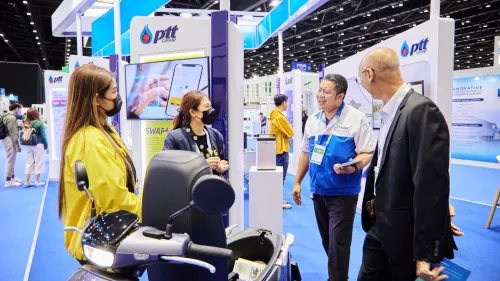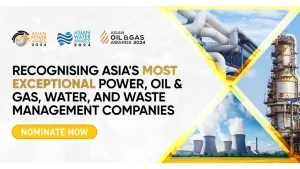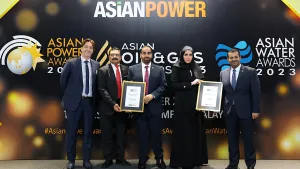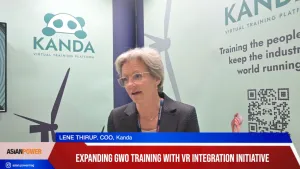News
Vietnam, Japan nuclear project intact despite Fukushima
Japan and Vietnam on Monday reaffirmed their plan to build a nuclear power plant in the Southeast Asian country using Japanese technology, even as Tokyo still struggles to put the world’s worst nuclear accident in 25 years under control. Last October, energy-hungry Vietnam accepted Japan as a partner in the construction of two nuclear reactors in Ninh Thuan province in central Vietnam. But in March, a massive earthquake and tsunami knocked out the cooling functions at Fukushima Daiichi nuclear power plant, 240 km (150 miles) northeast of Tokyo, triggering fuel rod meltdowns, explosions and radiation leakage. A joint statement, released after Japanese Prime Minister Yoshihiko Noda met with his Vietnamese counterpart Nguyen Tan Dung, said Japan was committed to enhance nuclear safety by sharing lessons learnt from the Fukushima accident. “The Vietnamese side, welcoming such Japan’s efforts, … expressed its strong desire for the provisions of nuclear technologies from Japan,” the statement said. “The Japanese side expressed its intention to provide Vietnam with the technologies that represent the world’s highest level of nuclear safety,” it added. Exporting social infrastructure, such as high-speed railway systems and nuclear power generation systems, is a pillar of Japan’s ruling Democratic Party’s growth strategy. But the Fukushima accident shattered the public’s trust on the safety of nuclear power generation and raised doubt over such strategy.
Vietnam, Japan nuclear project intact despite Fukushima
Japan and Vietnam on Monday reaffirmed their plan to build a nuclear power plant in the Southeast Asian country using Japanese technology, even as Tokyo still struggles to put the world’s worst nuclear accident in 25 years under control. Last October, energy-hungry Vietnam accepted Japan as a partner in the construction of two nuclear reactors in Ninh Thuan province in central Vietnam. But in March, a massive earthquake and tsunami knocked out the cooling functions at Fukushima Daiichi nuclear power plant, 240 km (150 miles) northeast of Tokyo, triggering fuel rod meltdowns, explosions and radiation leakage. A joint statement, released after Japanese Prime Minister Yoshihiko Noda met with his Vietnamese counterpart Nguyen Tan Dung, said Japan was committed to enhance nuclear safety by sharing lessons learnt from the Fukushima accident. “The Vietnamese side, welcoming such Japan’s efforts, … expressed its strong desire for the provisions of nuclear technologies from Japan,” the statement said. “The Japanese side expressed its intention to provide Vietnam with the technologies that represent the world’s highest level of nuclear safety,” it added. Exporting social infrastructure, such as high-speed railway systems and nuclear power generation systems, is a pillar of Japan’s ruling Democratic Party’s growth strategy. But the Fukushima accident shattered the public’s trust on the safety of nuclear power generation and raised doubt over such strategy.
Maheshwar hydropower developer defaults on loan payment
With a massive financial burden weighing down heavily on Shree Maheshwar Hydel Power Corporation Limited (SMHPCL), the developer of the 400 MW Maheshwar hydro electric project (HEP) in Madhya Pradesh, the company is now trying to maneuver its way out of the chaotic state of affairs by securing infusion of equity from a potential investor or financier.Having defaulted on re-payment of the subordinate loan, which was due by mid October 2011, worth Rs 375 crore extended by its prime lender, Power Finance Corporation (PFC), the company has blamed the stop-work order issued by the Ministry of Environment and Forests (MoEF) for its failure.Speaking on the issue, SCMHPL has asserted that the MoEF`s unjust decision delayed the project by more than a year and prevented it from achieving the conclusion of all works as envisaged earlier.Further, the helpless SMHPCL was unable to venture out into the capital market and accumulate the required sub debt amount.With MoEF revoking the order on the condition that the project be commissioned only after successful completion of all rehabilitation and resettlement (R&R) activities, SCHMPL has been forced to focus on concluding all R&R activities at the earliest to avoid any further delay in commissioning beyond the revised schedule.In a desperate attempt to fast track the implementation of activities for the project, which is now slated to be commissioned in December 2012, SMHPCL has now diverted the fresh tranche of equity capital to fund the rising R&R costs, which have tripled from its original estimates, instead of utilizing it to clear PFC's pending subordinate debt.In light of the above mentioned setbacks faced due to the MoEF order, SMHPCL has only found it fair that it be granted an extension of 1 year from PFC to repay the loan.To substantiate its demand made to PFC, the company has claimed that the proceeds from the proposed IPO, which is expected to be filed by the second quarter of 2012, will be used for the purpose of repayment.
What you need to know about the biomass energy market in South East Asia
Despite all the negative news on Carbon, the biomass energy market will continue to grow.
Why Philippines’ Smart Grid lags behind neighbors
An industry player laments on Philippine government’s failure to deliver initiative.
Who will buy Asia’s Clean Development Mechanism Projects Post-2012?
European restrictions on clean investments beyond 2012 proving challenge to Asia’s carbon market, says an expert.
What is the potential of clean energy in South East Asia?
ASEAN countries need to work with each other in order to achieve energy security, said Prof. Christoph Menke of the University of Applied Sciences in Trier, Germany.
Asia accounts for more than 75% of global CDM projects as at Oct 2011
Asia’s leading the global fight against the climate change at least in the clean development mechanism (CDM) market.
Chinese electric cables found to be substandard
More than 10 percent of the China's electric cables were found to be substandard on sample checks on three major kinds of products.
Bangladesh to build first nuke plant with Russia's assistance
A nuclear power plant will be built in Bangladesh with the help of Russia.
Is global carbon market dying?
Find out the answer from Ambassador Burhan Gafoor, chief negotiator for climate change in Singapore.
17th Conference of Paris may fail to deliver desirable results
New regulatory developments pose threats to global carbon market trading.
Bangladesh plant gets additional power from Rolls Royce
Rolls-Royce has signed a US$22 million contract to supply eight Bergen B32:40 16V reciprocating engine generator sets to Baraka Patenga Power Limited.
Japan radically changes energy policy after March Quake
The Fukushima disaster has meant overhaul in Japan's energy policy.
Japan to avert winter power crunch, braces for summer shortage
Japan is expected to avert power outages this winter through energy conservation but new problems will arise in summer as its entire fleet of reactors could be kept idled.
India's thermal power plants battle coal shortage
Out of the 86 thermal power stations monitored by the Central Electricity Authority, 44 stations have reported critical level of coal stocks.
Indian industry group calls for urgent reforms in power distribution
The Confederation of Indian Industry called for reforms in the power sector, particularly pointing out the need to curtail transmission and distribution losses .
Vietnam's hydropower plant investors lament of lack of capital
Vietnam's small and medium scaled hydropower plant projects with the designed capacity of less than 30 MW have not pushed through because of lack of capital.



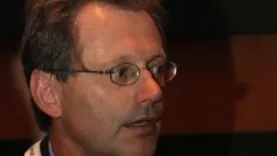
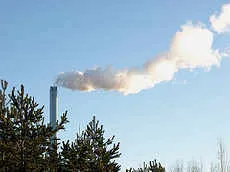


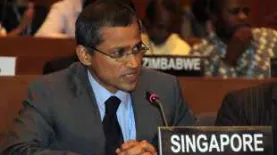

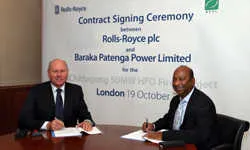

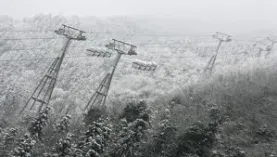
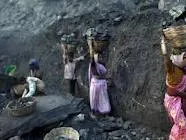
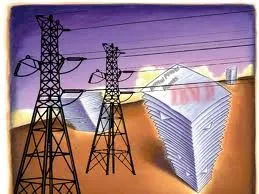
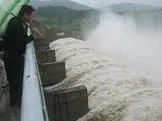

 Advertise
Advertise
